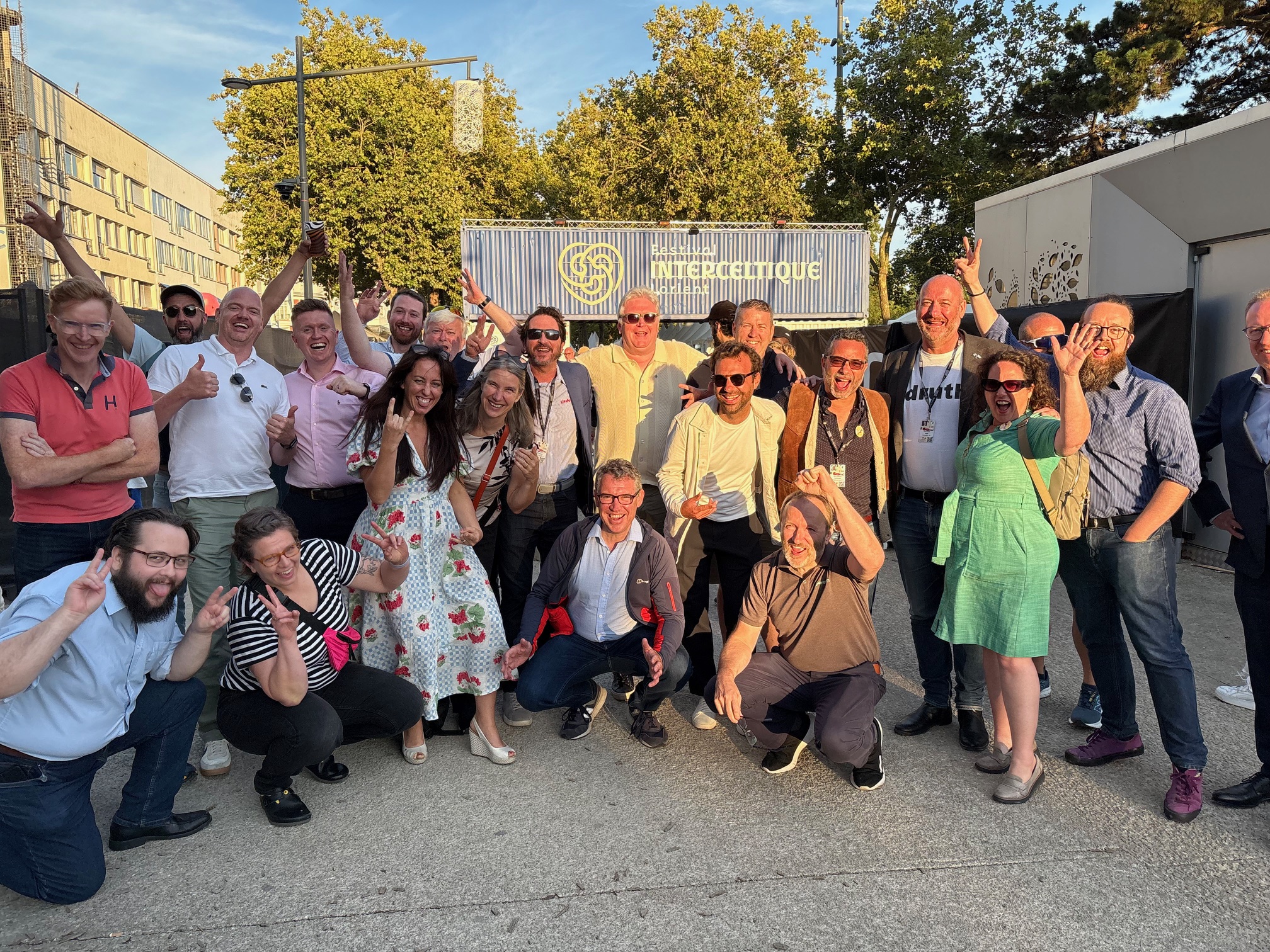
The 2025 Interceltic Business Forum brought Celtic innovators to Lorient for a high-energy day of ideas, connection, and cross-border collaboration.
On a warm summer morning in the heart of Brittany, the 2025 Interceltic Business Forum welcomed entrepreneurs, policymakers, innovators, and investors from across the Celtic world for a vibrant day of ideas, networking, and cultural connection.
Held during the globally celebrated Festival Interceltique de Lorient, this year’s forum proved once again why it is the must-attend business event for anyone looking to build bridges across Celtic regions and beyond.
.jpg)
From the moment the doors opened, the energy was palpable. Attendees gathered over coffee, making new connections with ease—typical of the Forum’s warm, authentic vibe. The official program kicked off with welcoming remarks from Fabrice Loher (President, Lorient Agglomération), Philippe Rouault (President, CCI Morbihan), Jean-Pierre Kihl (Festival Interceltique), and Robert Gauvin, Minister of Nouveau-Brunswick, all highlighting the importance of economic and cultural ties between Celtic communities on both sides of the Atlantic.
One of the morning’s first panels, Lorient Intelligence Embarquée, spotlighted the city’s growing reputation for embedded tech and ocean innovation, with insights from Gilles Poupard (Audelor), Fulup Le Fol (IOT bzh), and Gael Daubert (Marport). This was followed by a welcome from Charles Kergaravat, founder of the Forum, who emphasized why Interceltic connections matter—not just for economic growth, but for cultural preservation, innovation, and a collective future.
A memorable moment came when Perran Moon, UK MP, called on attendees to "unleash the Cornish Celtic Tiger," affirming Cornwall’s role in the Celtic economic resurgence. Shortly after, Antoine Bocquier gave an inspiring talk about his work on the moon rover launch, highlighting how Brittany’s talent is reaching far beyond Earth’s boundaries.
Pádraig Slyne of EirGrid emphasized the real potential of energy interconnectivity between Celtic regions through projects like the Celtic Interconnector, which will physically link the Irish and French power grids—offering not just technical benefits but a strategic model for long-term regional cooperation in renewable energy.
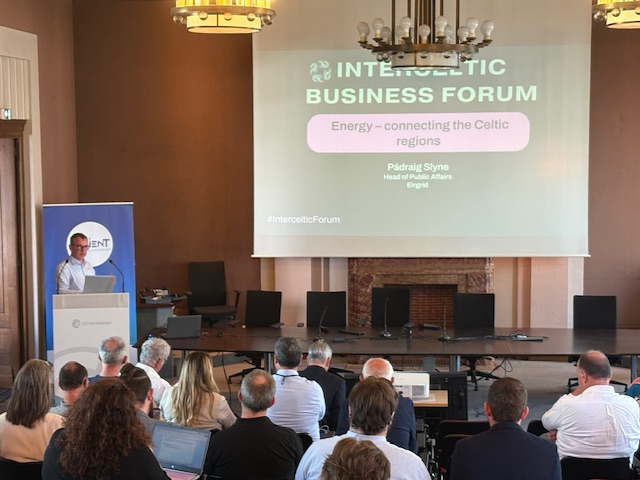
Following a networking break, the Isle of Man stepped confidently into the spotlight in a session moderated by Kirree Gooberman, showcasing just how far the island has come in asserting its presence on the Interceltic stage. Long underrepresented at previous editions of the Forum, this year marked a turning point. With a dynamic lineup—Chris Kissack, Brendon Kenny, Tim Sayer, and Chris Lee—the session highlighted the island’s impressive range of activity, from award-winning food innovation and digitally powered services to scalable, export-ready businesses. Their stories struck a chord with attendees, sparking genuine curiosity and admiration. By the end of the session, it was clear: the Isle of Man had gone from a quiet player to a must-watch Celtic hub, leaving many in the room thinking, “When can we visit?”
After lunch, the forum shifted focus to broader questions of collaboration, with a panel on Interceltic Connections: Why They Matter featuring Patrick Torrekens (Enterprise Ireland), John O’Loughlin (Welsh Government), Russell Dalgleish (Scottish Business Network), and Celine Jones (Capital Law). Their insights reinforced the idea that deeper cooperation among Celtic nations can unlock both economic opportunity and a stronger shared identity.
A standout session titled AI & Creativity brought together Rónán Mac Con Iomaire (Údarás na Gaeltachta), Jean-Marie Ollivier (Dizale), and Abby Reka (University of Galway). Together, they explored how AI is being used to support cultural preservation and creative industries—while also engaging critically with the risks around copyright and the efficiency gains AI brings to storytelling, translation, and production processes.
The afternoon also featured a maritime-focused roundtable on the energy transition at sea, with input from Pennavel, APAK, Lorient Agglomération, and CCI Morbihan, showcasing the region’s potential as a blue economy leader.
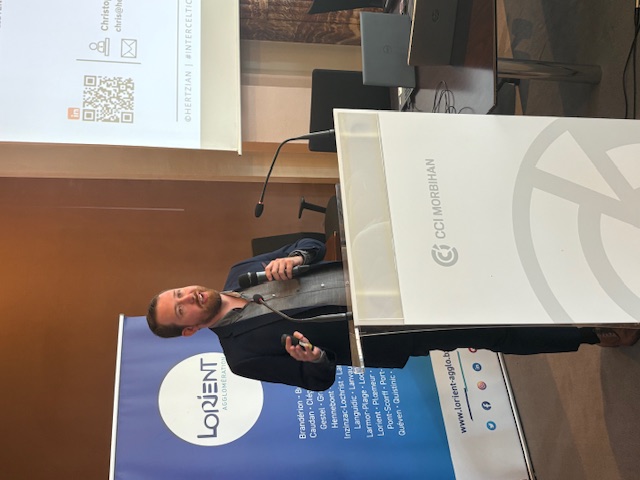
The Interceltic Startup Challenge was a standout feature of the Forum, serving as a high-energy platform to spotlight the next wave of innovation across the Celtic nations. Organized in collaboration with regional economic development agencies and startup accelerators, the challenge selects one early-stage startup from each Celtic region—Ireland, Scotland, Wales, Cornwall, Brittany, and the Isle of Man—to pitch on stage in Lorient. Winners receive curated support, including travel, legal and mentoring assistance, international exposure, and soft landing support in another Celtic market.
This year’s cohort reflected the depth and diversity of talent emerging across the Celtic world:
The six founders each pitched live on stage followed by the Forum’s interactive “Celtic Roulette” session—a dynamic format that mixed formal pitches with on-the-spot questions from judges and audience members. The room was focused, and the energy palpable, as each startup laid out their vision, value proposition, and ambitions for cross-border growth.
At day’s end, in a moment of pride for Cornwall, Hertzian was announced as the overall Interceltic Startup Champion 2025. The decision was made by a jury of 15 respected business leaders from across the Celtic world, who evaluated each company based on innovation, market potential, scalability, and alignment with the Forum’s values of collaboration and shared growth. The award not only recognized Hertzian’s impressive commercial traction and AI expertise but also highlighted the caliber of entrepreneurship rising across all six Celtic nations
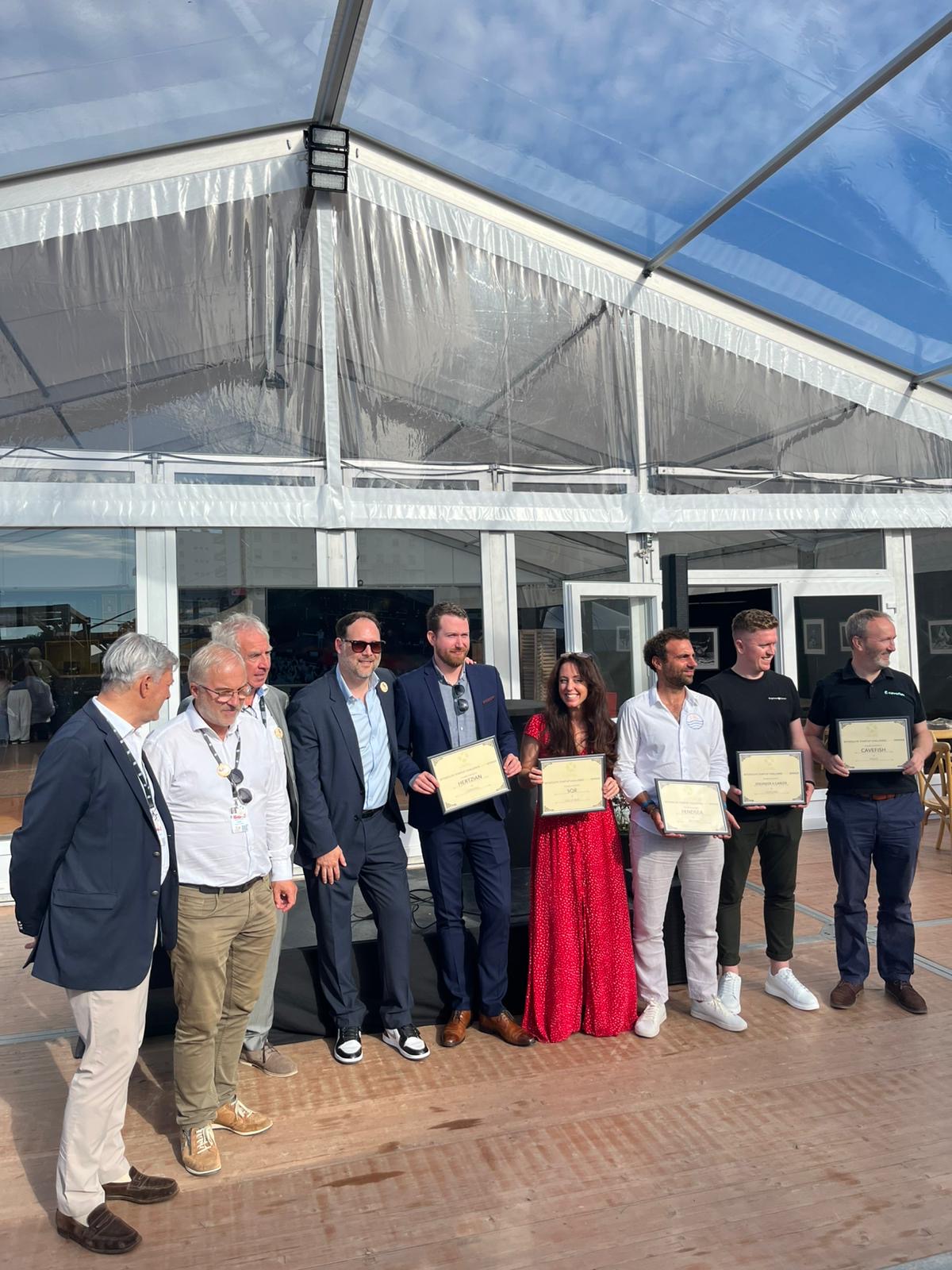
After an inspiring presentation from Ben Berthelot, Kevin Naquin, and Sami Parbhoo on The Business of Tourism in Louisiana, Emily Cintora, U.S. Consul for Western France, offered closing reflections on transatlantic innovation, diplomacy, and the strength of cultural ties between the U.S. and the Celtic nations.
Following Emily’s remarks, the forum concluded with a final networking session, where many lasting connections were made and new collaborations began to take shape. In a fitting end to the day, the grand prize winner of the Interceltic Startup Challenge was announced: Hertzian, from Cornwall—recognized for their cutting-edge work in AI-driven data insights.
The 2025 Interceltic Business Forum was more than a gathering—it was a living demonstration of what’s possible when shared culture meets collective ambition. From moon rovers to AI-driven solutions, and from startup pitches to policy dialogue, every session reflected the same underlying truth: the Celtic world is not just rich in heritage, but rich in opportunity.
What set this year’s Forum apart wasn’t only the quality of ideas or the global relevance of the conversations—it was the authenticity, energy, and openness of everyone in the room. Whether in a hallway chat, a pitch session, or a late-afternoon coffee, meaningful connections were made that will carry forward into new partnerships, investments, and innovations.
As the Forum wrapped and conversations spilled into the streets of Lorient, one thing became clear: the Celtic nations are moving forward—together. And if the energy of this year’s gathering is any indication, the best is yet to come.
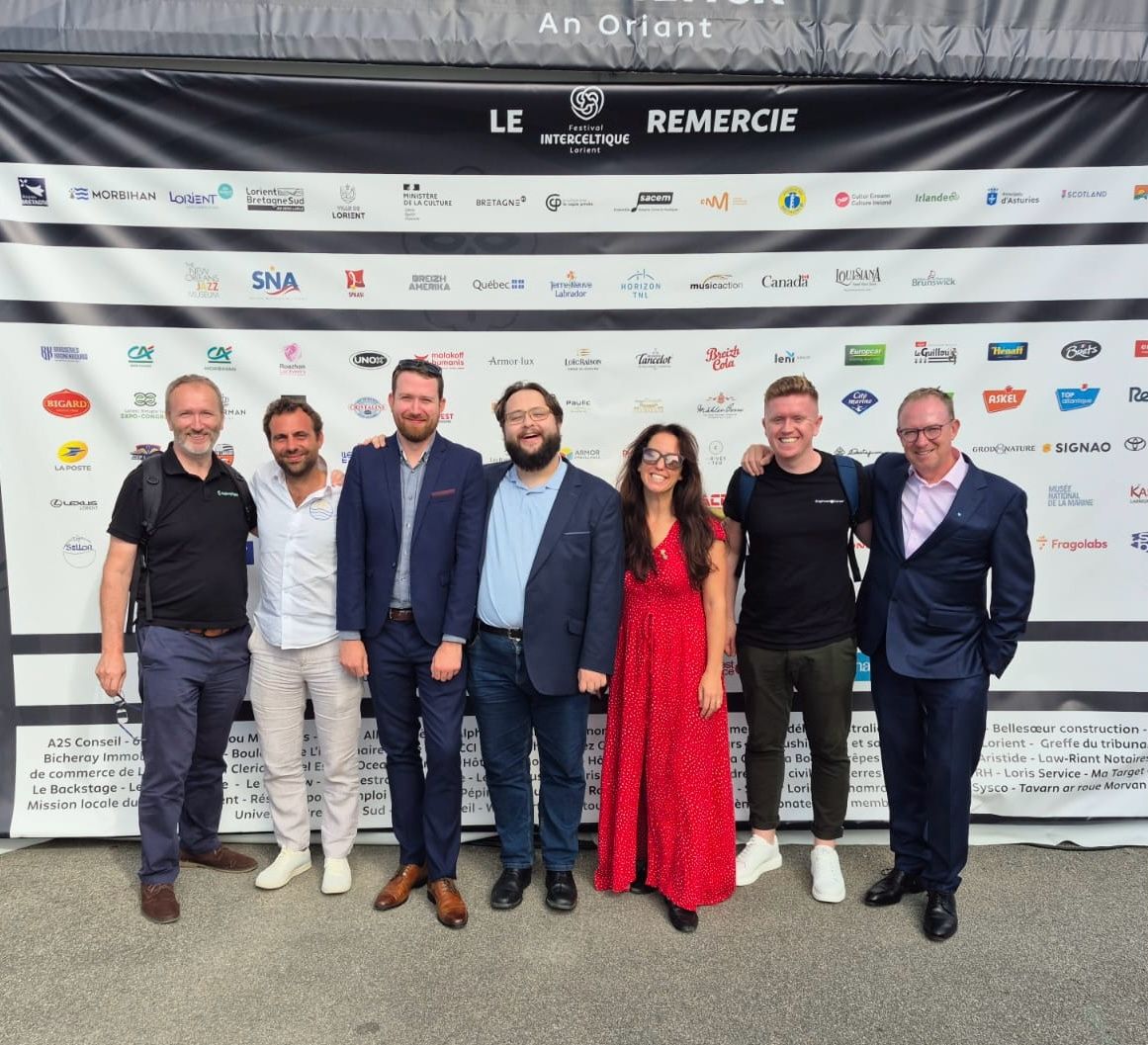
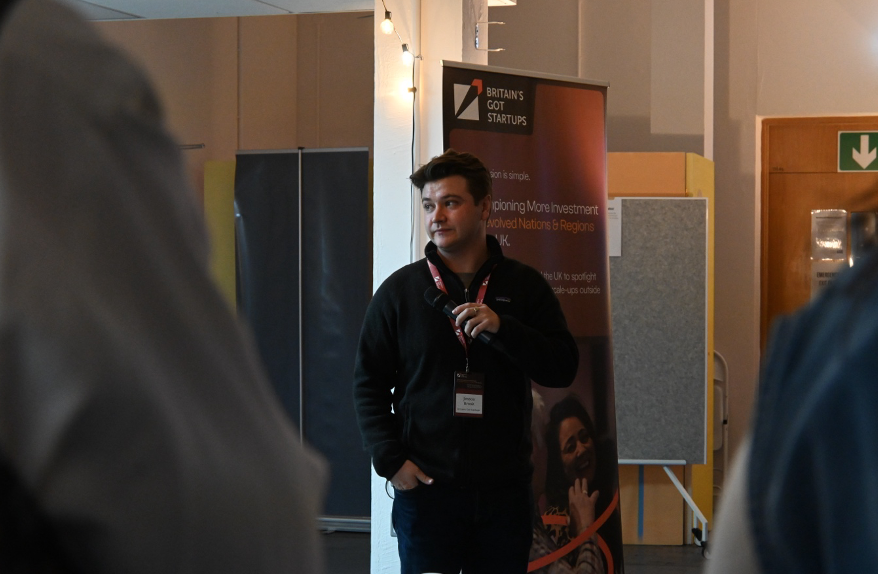
Jenson Brook, founder of Novus Capital, shares his approach to supporting innovative startups and expanding access to funding beyond London.
Read More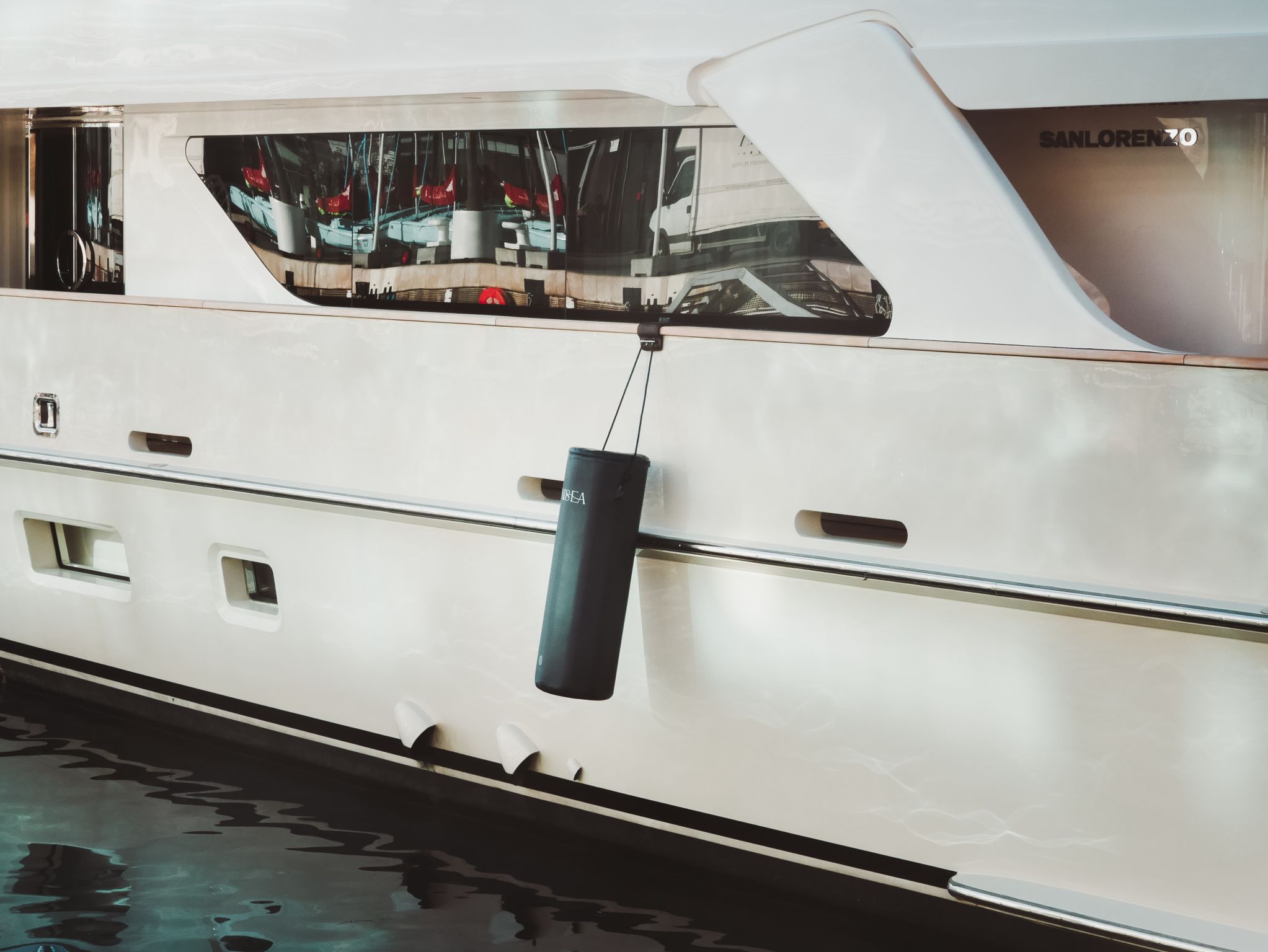
La startup lorientaise Fendsea entre dans une nouvelle phase de croissance, portée par son développement commercial et son expansion internationale.
Read More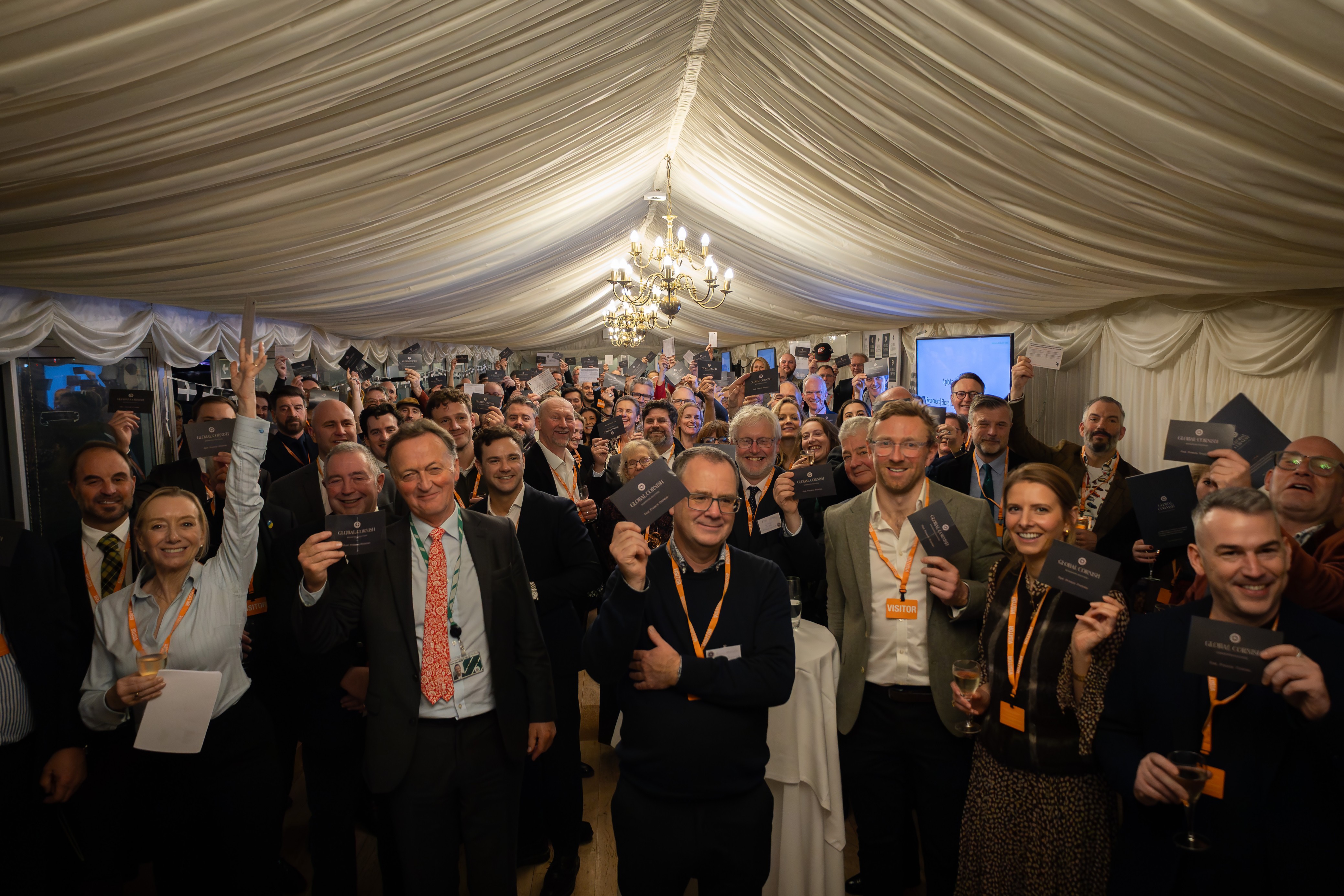
On 15 December, we officially launched Global Cornish at Westminster, bringing together nearly 200 Cornish diaspora from business, politics, culture, and sport.
Read More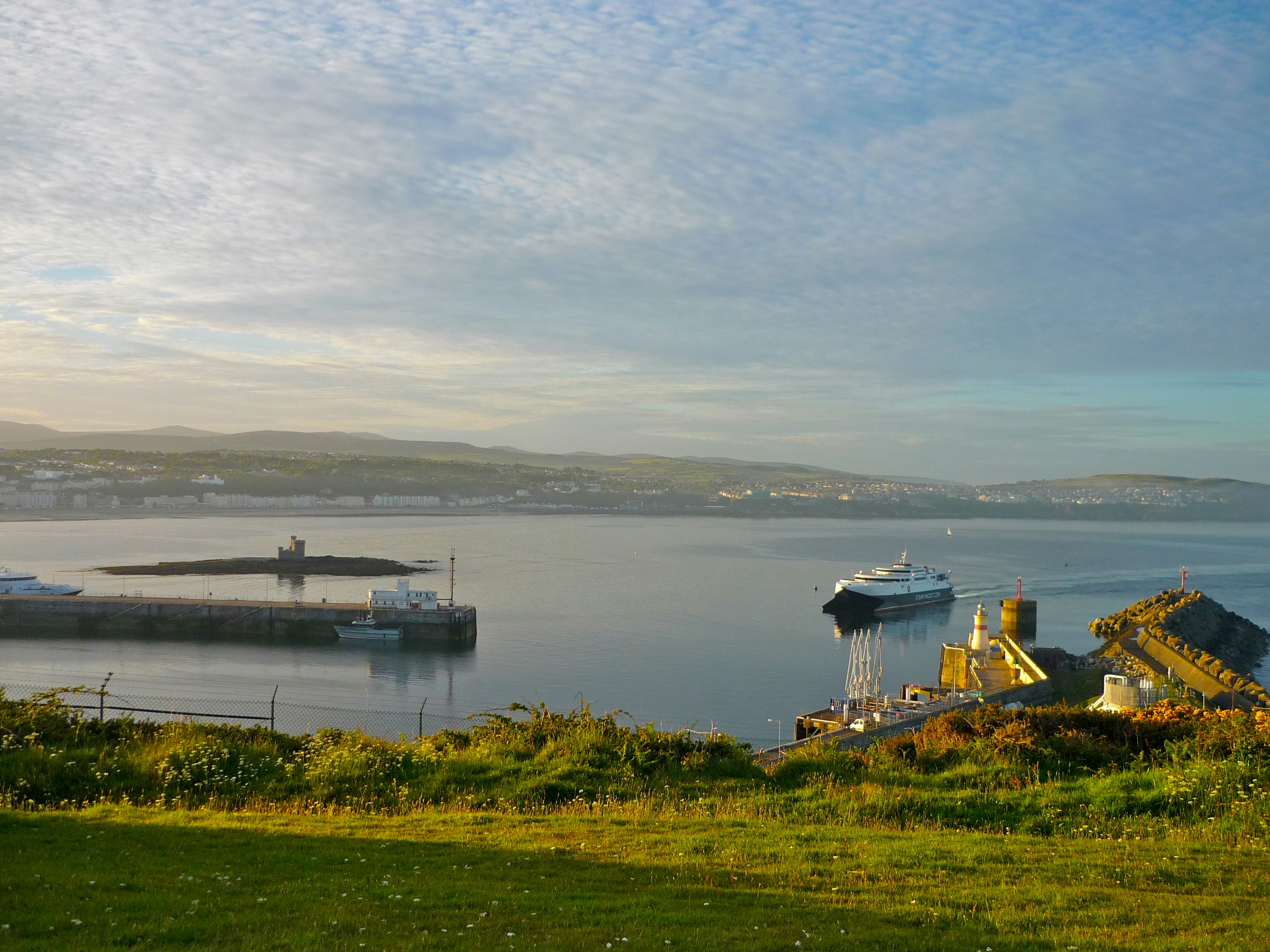
Dirigeants bretons, développez votre réseau interceltique. Découvrez pourquoi et comment participer à l’Interceltic Business Forum 2026 à l’Île de Man.
Read More